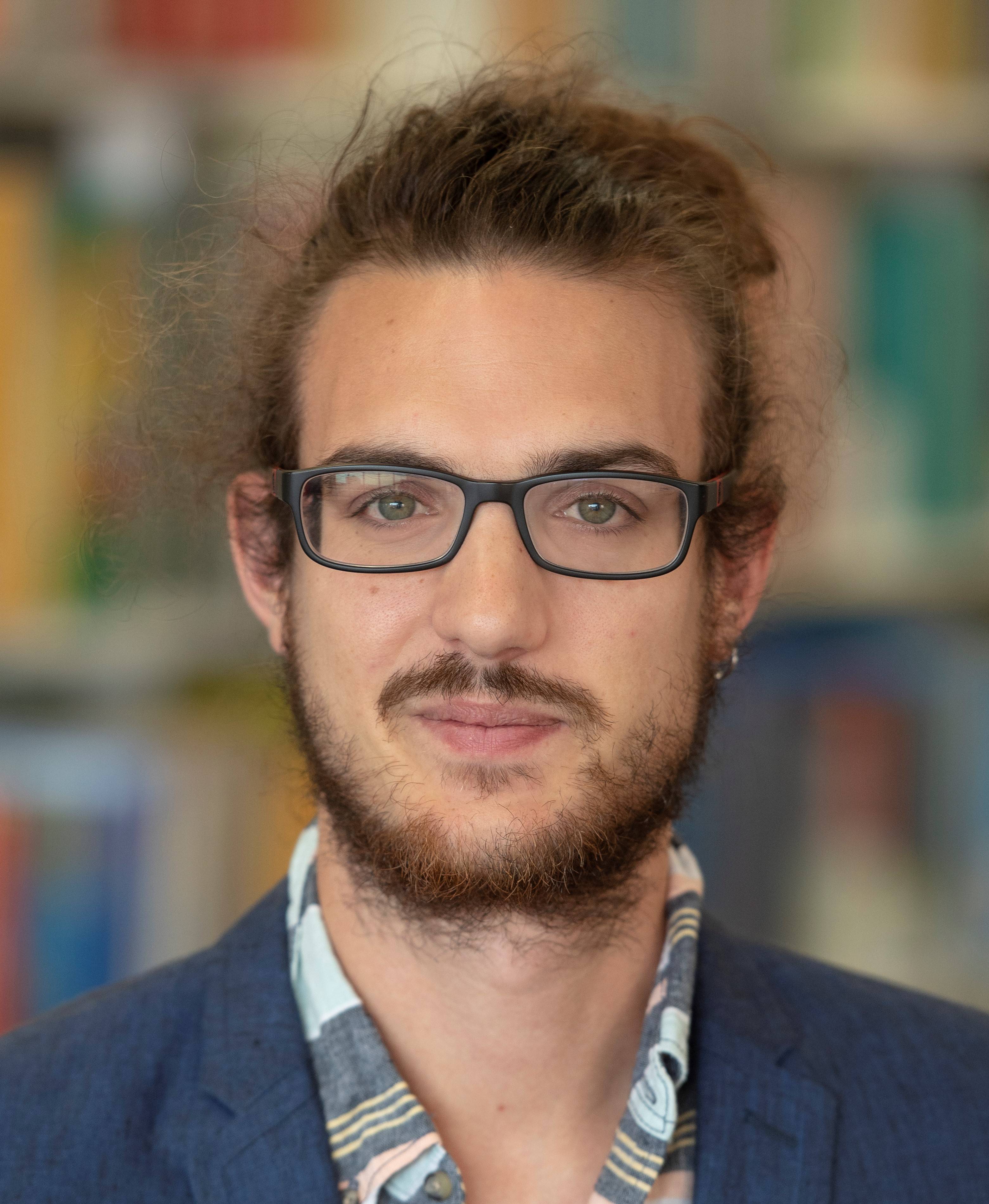Maël Le Noc Awarded a Phi Kappa Phi Dissertation Fellowship

The Graduate College proudly congratulates Maël Le Noc for receiving a 2020 Phi Kappa Phi Dissertation Fellowship. Maël is one of only ten recipients nationwide of this prestigious award and is Texas State University’s first-ever student to be selected as an awardee. The highly competitive $10,000 fellowship is awarded annually to active members of the Honor Society of Phi Kappa Phi who are doctoral candidates and are completing dissertations. The award provides financial support during the dissertation writing process to candidates whose projects demonstrate a high degree of originality and significant potential for advancing knowledge in the candidate’s discipline.
Born in France, Maël has always been interested in geography and history because of their capacity to elucidate the world around us – through examining stories of lived experience and historical events in the context of the geographical places that contain them. He completed his undergraduate studies in his home country at the Université Rennes 2, where he pursued degrees in both geography and history, in part because he could not decide between the two. During his last year of undergraduate, he studied abroad as an exchange student at Texas State and decided to stay in Central Texas to pursue a Master of Science in Geography at Texas State. During his first semester of graduate studies he met Dr. Alberto Giordano, who studies the Holocaust and other genocides through a geographical framework, and whose work fascinated Maël, as it combined his preferred subjects of history and geography using contemporary digital humanities techniques. What began as a small project with Dr. Giordano turned into Maël’s master’s thesis, which investigated family separations during the Holocaust in Italy. Since then, Maël has continued to study the geography of the Holocaust as a PhD student at TXST, focusing on personal histories and historical events in Paris, France during and after the Second World War.
Maël’s doctoral research, supervised by Dr. Giordano, investigates the effect of anti-Jewish persecution and the Holocaust on the spatial distribution, practices, and experiences of the Jewish population of two neighborhoods in Paris’s third arrondissement. Using both quantitative data (archival material produced by perpetrators and administrations) and qualitative data (written testimonies and audio recordings of the victims), he examines how experiences of persecution diffuse through the activities of daily life and map onto these neighborhoods, exploring how the aggregate spatial distribution of persecution can powerfully transform the perception, experience, and meaning of these places for the people who inhabit them. Although he studies historical occurrences of persecution, Maël’s research aims to broadly theorize the geographical complexion of oppression in a way that can be applied to contemporary instances as well. The goal is to better understand persecution and oppression – and how people respond to it – and to further our understanding of the ways violence and space interact.
As a write-up fellowship, the financial support from this Phi Kappa Phi award has allowed Maël to defer his graduate assistantship to spring 2021 and fully dedicate his efforts to the time-consuming process of data analysis and completing his dissertation. This fellowship has also allowed Maël to extend his research timeline and analyze approximately 30 additional survivors’ testimonies from the collections at the USC Shoah Foundation Center for Advanced Genocide Research, where he completed a residency last fall as the Margee and Douglas Greenberg Research Fellowship awardee. He is currently evaluating his quantitative and qualitative findings in order to theorize “the geography of persecution.”
Asked what advice he would give to future applicants, Maël states his primary recommendation is simply “to apply.” He also emphasizes the importance of timing, noting that one of the main lessons he learned from the application process was “to start working on the application early” and to allow time to polish it. “It may be time consuming, but you'll get some funding if you take the time to do it well [and] target relevant opportunities. Make lists of which opportunities you might apply to later, even if it is not yet the right year to apply.” Finally, he mentions that students should talk with their advisors, as well as with other students, and he strongly emphasizes that all applicants should work with The Graduate College external funding coordinators, Dr. Andrea Hilkovitz and Dr. Brian Smith.